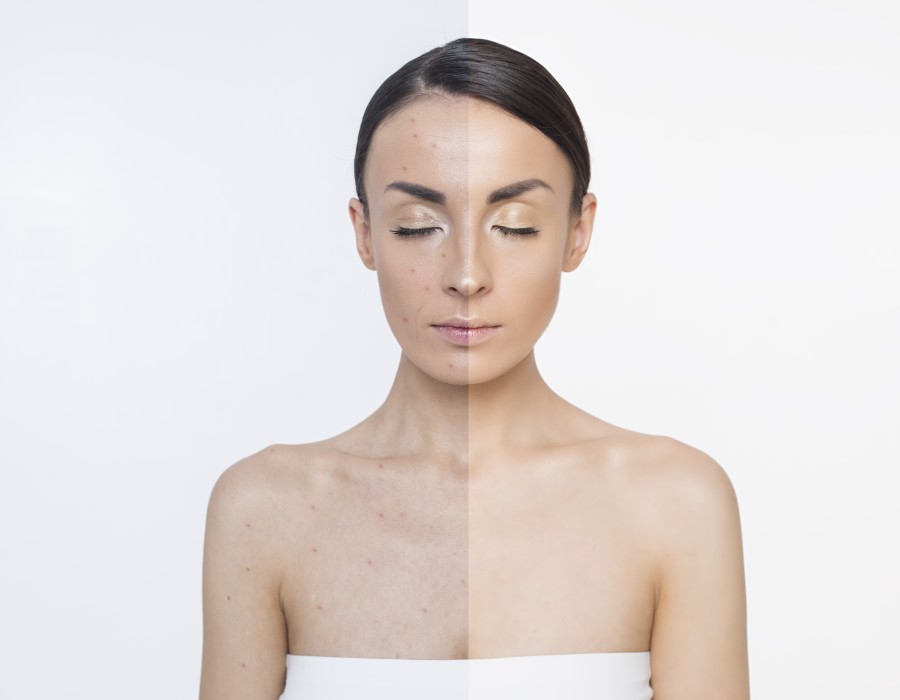Understanding Skin Pigmentation Issues
Skin pigmentation refers to the coloring of the skin due to melanin, a pigment produced by skin cells. When melanin production becomes unbalanced, it can lead to pigmentation disorders such as melasma, hyperpigmentation, or vitiligo. These conditions may arise due to various factors such as sun exposure, hormonal changes, genetics, or inflammation.
Millions of people seek solutions to correct pigmentation issues every year. While topical creams, laser therapy, and other dermatological procedures are widely used, the effectiveness of these methods varies. This leads to an important question: can lifestyle and diet changes enhance the results of skin pigmentation treatment.
The Link Between Diet and Skin Health
Nutritional Deficiencies and Pigmentation
Nutrition plays a critical role in maintaining healthy skin. Deficiencies in certain vitamins and minerals, such as vitamin B12, vitamin D, and iron, have been linked to pigmentation disorders. For example, a lack of B12 can result in melasma-like hyperpigmentation, particularly in individuals with darker skin tones.
Including a balanced mix of nutrients in your daily diet can promote melanin balance and skin repair. Foods rich in antioxidants, such as berries, leafy greens, nuts, and seeds, help neutralize free radicals that contribute to skin aging and uneven pigmentation.
Foods That May Help With Pigmentation
Certain foods are believed to naturally support the skin's healing process:
- Carrots and sweet potatoes: High in beta-carotene, a precursor to vitamin A, which promotes skin cell regeneration.
- Citrus fruits and bell peppers: Rich in vitamin C, essential for collagen production and the reduction of dark spots.
- Green tea: Contains polyphenols that protect the skin from sun-induced pigmentation.
- Fatty fish (like salmon and mackerel): Full of omega-3 fatty acids, which reduce inflammation and support skin hydration.
These dietary choices, when consistently followed, can support the effectiveness of topical skin pigmentation treatment.
How Lifestyle Choices Affect Pigmentation
Sun Exposure and Its Impact
One of the most important lifestyle factors influencing skin pigmentation is sun exposure. Ultraviolet (UV) rays can stimulate melanin production, exacerbating hyperpigmentation. For this reason, dermatologists often stress the use of sunscreen during and after skin pigmentation treatment. Even the best treatments can be undermined by prolonged or unprotected sun exposure.
Sleep and Stress Management
Sleep allows the body to repair and regenerate, including skin cells. Chronic sleep deprivation can lead to dullness and worsen pigmentation. Similarly, unmanaged stress elevates cortisol levels, which may disrupt hormonal balance and contribute to melasma or flare-ups in existing pigmentation conditions.
Practicing mindfulness, getting adequate sleep, and engaging in stress-reducing activities like yoga or meditation can be beneficial to overall skin health and may improve treatment results.
Exercise and Blood Circulation
Regular physical activity enhances blood flow, which means more oxygen and nutrients are delivered to skin cells. Improved circulation supports detoxification and can promote a more even skin tone. Exercise also helps regulate hormones and reduces inflammation, both of which are relevant to managing pigmentation disorders.
Supporting Professional Treatments with Healthy Habits
Combining Diet and Dermatological Care
A well-balanced diet and healthy lifestyle practices don’t replace professional dermatological care but can enhance its effectiveness. For instance, antioxidants from food may support the skin's recovery after treatments such as chemical peels or laser therapy. Anti-inflammatory diets may also help reduce post-treatment redness or irritation.
Some dermatologists recommend specific supplement regimens that complement skin pigmentation treatment, such as glutathione, vitamin E, or niacinamide, which are known for their skin-lightening and healing properties.
Hydration and Detoxification
Staying hydrated is vital for skin elasticity and tone. Water helps flush out toxins and promotes a radiant complexion. Reducing the intake of processed sugars, alcohol, and caffeine can also contribute to healthier skin. These substances can dehydrate the body and aggravate skin conditions, including pigmentation issues.
The Role of Gut Health in Skin Appearance
Emerging research suggests that the gut-skin axis plays a role in inflammatory skin conditions, including pigmentation. Poor gut health can manifest as visible skin problems due to the overgrowth of harmful bacteria or poor nutrient absorption. Including fermented foods like yogurt, kefir, sauerkraut, and fiber-rich foods may help restore gut balance and improve skin clarity.
Probiotics and prebiotics may also support clearer, more even-toned skin by enhancing digestion and immune function.
Final Thought
While lifestyle and dietary changes are not a cure for pigmentation disorders, they can significantly support and enhance the success of skin pigmentation treatment. Maintaining a nutrient-rich diet, staying hydrated, protecting the skin from UV exposure, and managing stress are essential components of a comprehensive skincare approach.
For best results, individuals should consult with dermatologists to tailor treatments based on their specific condition and skin type, while simultaneously adopting supportive habits in daily life. By aligning external treatments with internal wellness, the journey toward clearer, more balanced skin becomes more effective and sustainable.





Comments